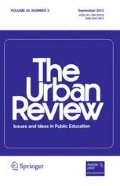Abstract
The paper critically examines the quality of education in Nigeria's Universal Primary Education (UPE) scheme from 1976 to 1986. The author argues that the positive impact of the UPE scheme was that more people went to school, and many of them can now read and write their names and seem to be better informed. But the standard of Seaming fell far below what it was before the introduction of the UPE scheme in Nigeria. Those who planned the scheme apparently forgot to consider the importance of the availability of qualified teachers, adequate learning environments, equipment and textbooks, classroom management and supervision, and the content of the curriculum. Since availability of the above facilities is integral to effective teaching and classroom performance, the inevitable outcome was the erosion of standards in Nigeria's primary education. The author advises other developing countries to act cautiously when embarking on prestige educational projects, such as the UPE scheme, as a means to combat ignorance and illiteracy. It is also hoped that the Nigerian experience will lead to a further understanding of the postulation by educational analysts of school facilities as major factors in effective teaching and determining the quality of learning in the developing countries.
Similar content being viewed by others
REFERENCES
Ad' Obe Obe. 1984. Nigerian education: Political dreams vs. social reality. West Africa, May 7, p. 977.
Ajimoke, I. O. 1976. Quality and quantity in Nigerian primary education: Perspectives on the UPE programme. West African Journal of Education, 20 (1): 71-93.
Allen, J. 1961. Always there stands the teacher. In G. K. Hodenfield, and T. M. Stinnet (Eds.), The Education of Teachers. Prentice Hall, Inc.
Asagwara, K. C. P. 1989. A Perspective on Free Education at All Levels in Nigeria. Unpublished Ph.D. Thesis, University of Manitoba, Winnipeg, Manitoba, Canada.
Asagwara, K. C. P. 1995. Political legitimacy and educational policy making in Nigeria in 1970's: The case of the Nigerian military government 1966-1976. Canadian and International Education, 24(1), 83-99
Banjo, S. A. 1972. The purpose of primary education. In A. Adaralegbe (Ed.), A Philosophy for Nigerian Education. Ibadan, Nigeria: Hieneman.
Common, D. L. et al. 1988. The C.E.O. and quality of education. The Canadian School Executive, 8(1): 13-16.
Coombs, P. 1985. The World Crisis in Education: The View from the Eighties. New York and Oxford: Oxford University Press.
Cuttance, P. 1980. Do schools consistently influence the performance of their students? Educational Review. 32: 267-280.
Duruji, C. A. 1978. The dilemma of educational expansion in developing countries: A case study of Nigeria. Educational Review, 30(1): 67-73.
Harrigan, P. 1976. Revolution of rising expectations. African Development, 10(3): 275-276.
Heyneman, P. 1980. The Evaluation of Human Capital in Malawi. Washington, DC: World Bank.
Heyneman, P., and Jamison, D. 1980. Student learning in Uganda: Textbooks availability and other factors. Comparative Education Review. 24: 206-220.
Heyneman, P., and Loxley. W. A. 1983. The effect of primary school quality on academic achievement across twenty-nine high-and low-income countries. American Journal of Sociology, 88(6): 1162-1194.
Husen, T. 1977. Pupils, teachers and schools in Botswana—A national evaluative survey of primary and secondary education. In Education for Kagisano: Report of the National Commission on Education, Vol. 122, Gaborone, Botswana.
Husén, T. 1979. The School in Question. London: Oxford University Press.
Jamison, D., et al. 1981. Improving elementary mathematics education in Nicaragua: An experimental study of the impact of textbooks and radio on achievement. Journal of Educational Psychology. 73: 556-567.
Jencks, C., et al. 1972. Inequality: A Reassessment of Family and Schooling in America. New York: Basic Books.
Johnstone, J. N., et al. 1983. Out-of-school factors and educational achievements in Indonesia. Comparative Education Review. 27: 278-295.
Lewin, K. 1985. Quality in question: A new agenda for curriculum reform in developing countries. Comparative Education, 21(2): 117-133.
Mwamwenda, T. S., and Mwamwenda, B. B. 1987. School facilities and pupils' academic achievement. Comparative Education. 23(2): 225-235.
Nigeria. 1977. National Policy on Education. Lagos, Nigeria: Federal Ministry of Information, Printing Division.
Nigeria. 1978. Implementation Blueprint on the National Policy on Education. Lagos, Nigeria: Federal Government Printer.
Nigeria. 1981. Towards Qualitative Education. Federal Ministry of Education, Lagos, Nigeria.
Nigeria. 1987. Education in Nigeria. External Publicity Division, Federal Department of Information, Federal Ministry of Information and Culture, Lagos, Nigeria.
Nwagboso, M. 1987. Education in doldrums. West Africa, November, pp. 2342-2343.
Ocho, L. O. 1986. Educating Nigerians in the eighties: Primary education in Nigeria. In B. O. Ukeje et al. (Eds.), Issues and Concerns in Educational Administration and Planning: The Nigerian Case in International Perspective. Lagos: Macmillan Nigeria Ltd..
Pandit, H. N. 1988. Some problems of imbalance and maladjustments in educational development in Nigeria. In J. Etim and D. Alaezi (Eds.), Relevance in Nigerian Education: Patterns, Approaches and Strategies. Ibadan, Nigeria: University Press, Ltd.
Sana, L. J. 1983. Social structure and teacher effects on academic achievement: A comparative analysis. Comparative Education Review, 27: 69-88.
Sofenwa, L. A. 1976. Observations on the primary school education in Nigeria in relation to the UPE. West African Journal of Education, 20(1): 128-140.
Ukeje, B. O. 1980. The governance and administration of education in Nigeria. In D. Friesen et al. (Eds.), Educational Administration: A Comparative Overview. Edmonton, Canada: Department of Educational Administration, University of Alberta.
Urwick, J. 1983. Politics and professionalism in Nigerian educational planning. Comparative Education Review, 27(3): 323-340.
Urwick, J. 1987. Improving the qualifications of primary school teachers in Nigeria: Official goals and practical possibilities. Compare, 17(2): 137-155.
West Africa. November, 1987, p. 2342
West Africa. May, 1988, p. 808.
Wilson, D. W. 1976. National educational planning influenced by military government: Nigeria. Educational Planning, 2(4): 64-83.
Author information
Authors and Affiliations
Rights and permissions
About this article
Cite this article
Asagwara, K.C.P. Quality of Learning in Nigeria's Universal Primary Education Scheme—1976–1986. The Urban Review 29, 189–203 (1997). https://doi.org/10.1023/A:1024676910968
Issue Date:
DOI: https://doi.org/10.1023/A:1024676910968




